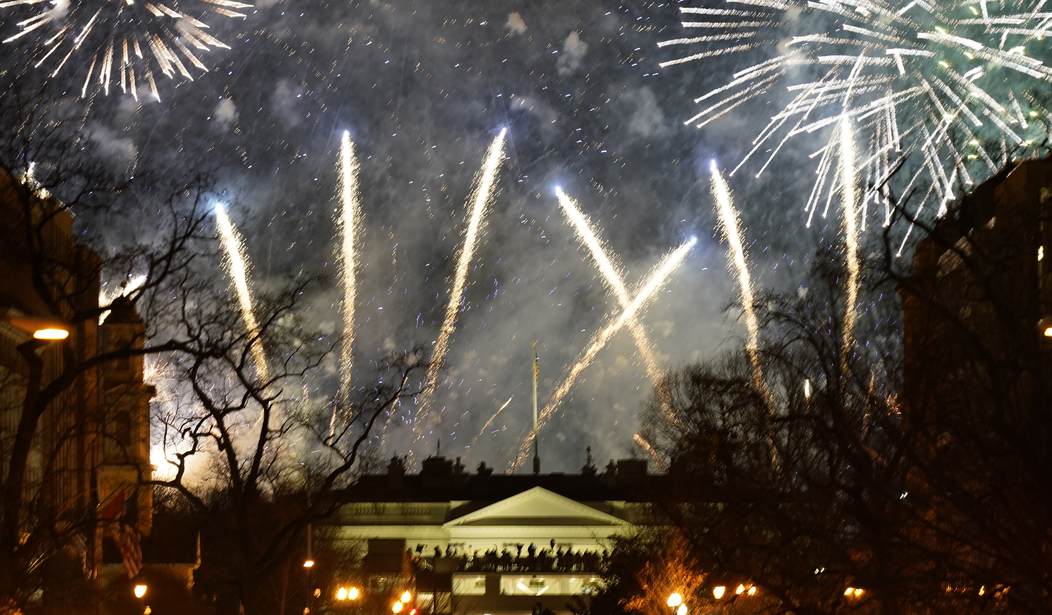As the Fourth of July fast approaches and we consider the many alternatives available for recreation and entertainment, we should pause to ponder an important question tied closely to the deeper meaning of the day.
The question is deceptively simple, but it goes to the heart our relationship with government and every significant policy issue that confronts us. And the answer to the question will determine whether we survive as a free people.
The question to ponder on Independence Day is, simply: Where do our rights come from?
In any system of government ultimate authority, or sovereignty, must be located somewhere in the system for it to function. For most of history, in most places, sovereignty has been located in the ruler: the king or queen, warlord, military commander, party chairman, or the like.
Where sovereignty is located in the ruler, the personal embodiment of legitimate state power, the rights of individuals have been understood to be little more than the malleable artifacts of the ruler, with their scope and substance and tenure entirely dependent upon the ruler’s determinations and dispensations. The economic and social status of persons, their property, their liberty, their very lives are understood to be contingent upon their relationship with the ruler.
In 1776, our Founders turned this traditional concept of state sovereignty, and the relation of the ruler to the people, upside down. For the first time in history, a nation was founded on the proposition that the people themselves were sovereign, endowed by their Creator with unalienable rights that the government was bound to recognize, respect, and protect.
Recommended
With their property and person protected by a Constitution enacted to secure the natural rights affirmed in the Declaration of Independence, the creative genius of a free American people produced unparalleled progress and prosperity.
However, as the twentieth century unfolded, certain politicians and intellectuals – with Woodrow Wilson the embodiment of both – thought that the principles of natural rights, individual liberty, and law-limited government embodied in the Declaration and Constitution were outdated relics of a simpler agricultural past that dangerously undercut to ability of the government to deal effectively with the complex challenges of industrialization and urbanization that confronted the nation in the new century.
Wilson and others believed that they had more “progressive” ideas for the updated and radically altered form of government they thought America needed. With the American economy and society becoming more and more complex, the progressives argued that founding assumptions about popular sovereignty and self-government needed to be rethought and the role of the people in the functioning of their government narrowed significantly.
For government to function efficiently in the “new republic” of the progressives, controlling authority needed to be consolidated in the executive branch where it would be exercised by credentialled technocrats who, insulated from the pressures of democratic accountability, would be free to use their expertise to regulate the affairs of Americans and modify private sector arrangements as needed to produce the results desired by the regulators. So was born the administrative state.
To justify and facilitate this massive anti-democratic concentration of power in the executive branch bureaucracy, progressives sought, and still seek, to discredit the concept of natural rights and replace it with the age-old authoritarian concept of malleable rights that are created by the government and then distributed and redistributed by the government according to its evolving policies and the needs of its supportive constituencies. And so were spawned the abuses of the administrative state.
All the inefficiencies and inequities of the regulatory system that we find so troubling, from the endless rat’s maze that typifies the permitting process, to the crony-corporatist regulations that favor connected incumbents while discouraging innovative new entrants, and the heavy-handed enforcement actions and shakedown settlements, all are best understood as the direct result of a regulatory process based upon a progressive world view that regards the possession, use, and disposition of property as activities not undertaken as a matter of right, but only with and to the extent allowed by government permission.
Over the years, constitutional conservatives have pursued a wide variety of reforms designed to rein in the overreaching abusive administrative state, including the Administrative Procedure Act, regulatory benefit cost analysis, regulatory moratoria and rollbacks, and regulatory budgeting. While these efforts did achieve some limited success, they have failed to check fundamentally the relentless expansion and ever-increasing overreach of the federal bureaucracy.
That bureaucracy will only be checked effectively when reformers base their efforts on a steadfast commitment to restore the vitality of the foundational concept upon which our constitutional system of government and all our liberties rest: The understanding that, in fact, our rights come not from the generosity of the state but from the hand of God.
So, on this anniversary of our Founding, and the beginning of our 248th year as a free Republic, let us all ponder this vitally important question: Where do our rights come from?
J. Kennerly Davis is a former Deputy Attorney General for the Commonwealth of Virginia. He can be reached at: j.kendavis@verizon.net

























Join the conversation as a VIP Member